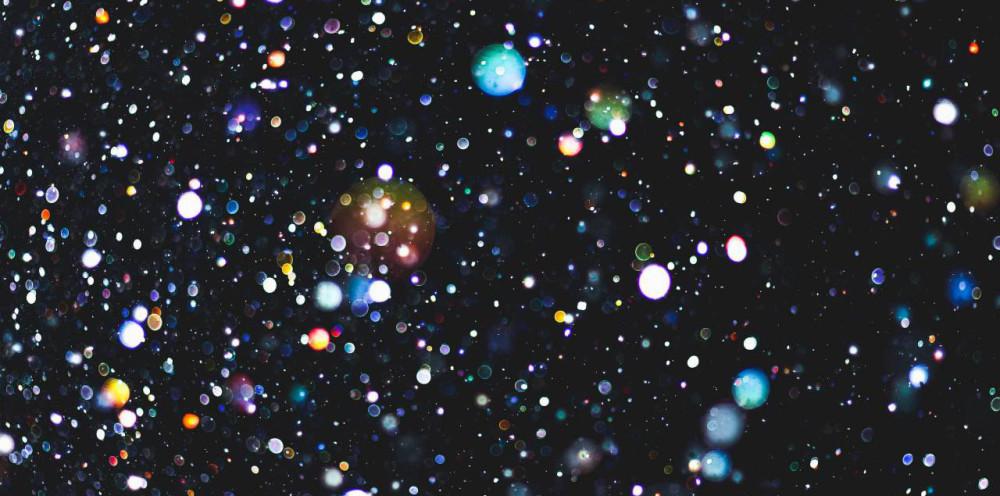If a piece of matter is cut in half, it becomes two pieces of matter, and if one of them is cut open again, it can be divided into two pieces, and if it is done continuously, can it be divided indefinitely?
This is an interesting question, many people have thought about similar problems since elementary school, and it is also an old question, and the records of similar problems can be traced back to the ancient Greek period more than 2800 years ago. Of course, at that time, science had not yet been born, so people could only think about this problem from a philosophical level, people wanted to explore the origin of all things by answering this question, and the ancient Greek scholars we are familiar with, such as Pythagoras and Thales, once expressed their views on this problem, of which Democritus's view was the closest to modern science, he believed that matter cannot be infinitely divided, there is "the smallest matter" in the world.

Although Democritus proposed the concept of "minimal matter", he only said it on a philosophical level, and in the years before the birth of modern science, he had no way to answer what "minimum matter" really was, and now we have the answer.
The world is made up of all kinds of substances, the tables, chairs, benches, electrical equipment around us, the rock trees outside the windows, the small bridges and flowing water, and even the various celestial bodies in the vast universe. These macroscopic substances can be divided, and can be divided many, many times until they are divided into individual molecules. Most matter is composed of molecules, and many substances are directly composed of atoms, taking water as an example, it is composed of water molecules.
Water molecules are extremely small, and generally speaking, a drop of about 0.05 milliliters of water contains about 10 trillion water molecules.
The water molecule is very small, but it is not the most basic form of matter, and we can continue to split the water molecule, at which point we will find that the water molecule is composed of two hydrogen atoms and an oxygen atom. Oxygen is a gas that we are more familiar with, because we must breathe every moment, and breathing is inseparable from oxygen, and oxygen molecules are composed of two oxygen atoms. So is the oxygen atom the smallest unit of matter? Still not. We can further split the oxygen atom, at which point we will find that the oxygen atom contains two basic components, namely the atomic nucleus and the 8 extranuclear electrons. Can you continue to split? Yes.
Open the nucleus, we will find that the nucleus contains protons and neutrons, taking the oxygen nucleus as an example, which contains 8 protons and 8 neutrons.
This time it's time to come to an end, right? It is true that at first scientists did think that protons and neutrons were inseparable, but then scientists wondered what would happen if they bombarded protons and neutrons with high-speed particles. When the scientists did, they found that the bombarded protons and neutrons would be deflected at three different angles, which meant that there was something else inside the protons and neutrons, so the protons and neutrons could still continue to be split. So what is a substance smaller than protons and neutrons? It's quarks. This time, it can no longer be divided, that is, the quark is the smallest unit of matter, so it is also called "elementary particles".
Of course, there is not only one kind of elementary particle in the world, and the electrons outside the atomic nucleus are also inseparable elementary particles, and there are many others, so a set of theories that can describe all the elementary particles that make up matter appeared, and it was called the "Standard Model".
According to the Standard Model, as many as 61 kinds of elementary particles are known, and these elementary particles can be divided into two types, namely fermions and bosons. It can be said that all matter in the world is composed of these elementary particles, so what role do fermions and bosons play in the composition of matter? Fermions are the smallest units of matter, which contain what we have just called electrons and quarks, etc. Interestingly, matter has mass, whether it is matter in the macroscopic world, or molecules and atoms have mass, but elementary particles are massless.
How do massless elementary particles form matter with mass? This is where the boson is used.
Bosons include photons, gluons, W bosons, Z bosons and Higgs bosons, bosons are also elementary particles, naturally there is no mass, but bosons in the composition of matter as "binder" role, its main role is "transfer interaction", and the interaction between particles makes the matter have mass, such as when several quarks in the gluon adhesion to form a proton, it has a mass, all the materials known today's world are composed in this way. It can be seen that matter cannot be divided indefinitely, and the smallest unit of matter, that is, elementary particles, is inseparable.